Storing your food wrong can turn your kitchen into a science experiment gone bad. We’ve all been there — shoving things into the fridge or pantry and hoping for the best. Spoiler alert: hope isn’t a great preservation method. But don’t worry, this collection is here to save the day. We’re diving into those common storage blunders and showing you how to keep your food fresh and tasting perfect. Stick around for some straightforward tips that will make your groceries last longer and your kitchen a lot less chaotic.
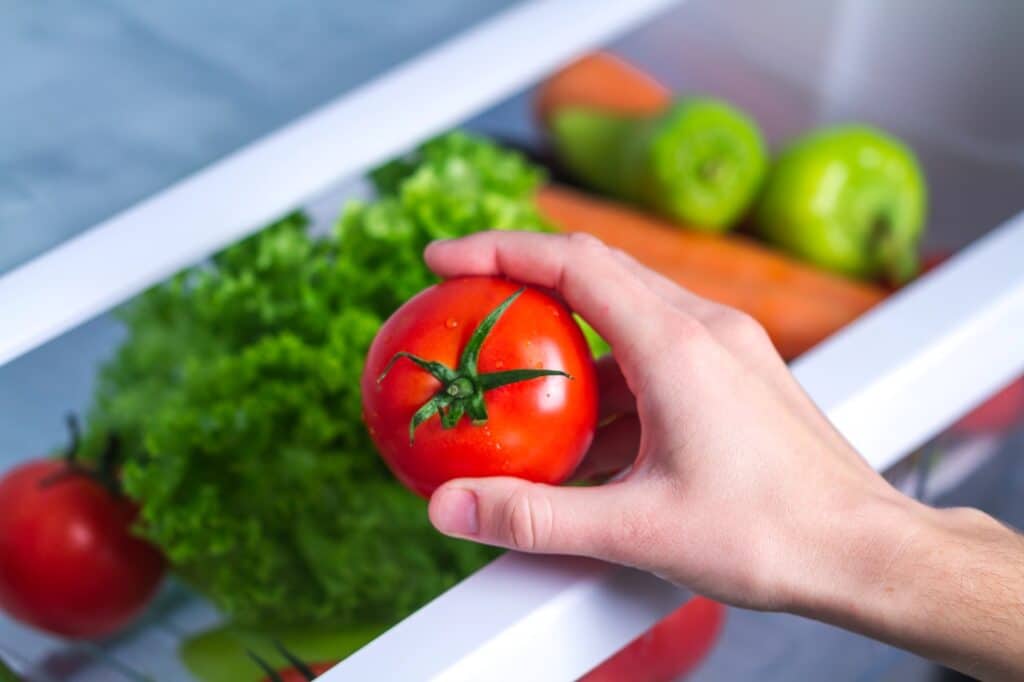
Coffee Beans

Storing coffee beans in the refrigerator or freezer is a mistake because they can absorb moisture and odors, affecting their flavor. Coffee beans and grounds are sensitive to light, air, moisture, and heat. To preserve their freshness and quality, they should be stored in an airtight container in a cool, dark place, such as a pantry. This helps maintain their natural oils and flavors for a consistently great cup of coffee.
Wine

Storing wine in an upright position or in a warm place can negatively affect its quality and aging process. When wine is stored upright, the cork can dry out, allowing air to seep into the bottle and spoil the wine. Warm temperatures can also accelerate aging and degrade the flavors. The correct way to store wine is to keep it on its side or at a slight angle in a cool, dark place with a consistent temperature and humidity level. This position helps keep the cork moist and prevents air from entering the bottle.
Bread

Bread should not be stored in the refrigerator because the cold temperature accelerates the staling process, causing the bread to become dry and hard. To maintain its freshness, the best method is to store bread at room temperature in a bread box or a paper bag, which helps retain its moisture and texture. For longer-term storage, freezing the bread is recommended. When you need to use it, simply thaw the bread at room temperature or toast it directly from the freezer.
Nuts

Storing nuts at room temperature for extended periods is a mistake because their high oil content makes them prone to becoming rancid. Heat, light, and air can speed up this process, ruining their flavor. To keep nuts fresh and great-tasting, store them in an airtight container in the refrigerator or freezer. This way, they stay protected from factors that cause spoilage, letting you enjoy them for much longer.
Onions

Onions should not be stored in the refrigerator or in plastic bags. Refrigeration can cause onions to become mushy, and plastic bags trap moisture, leading to mold and sprouting. The correct way to store onions is in a cool, dry, and well-ventilated place, such as a pantry, in a mesh bag or a basket to allow air circulation.
Avocados
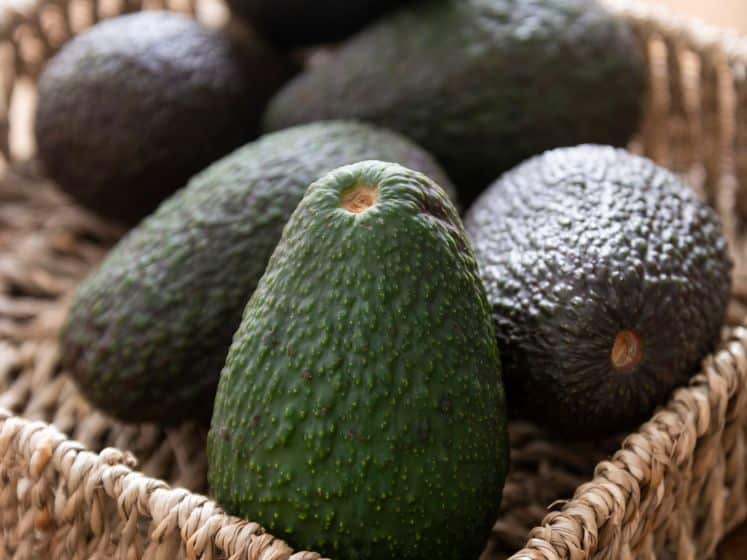
Unripe avocados should not be stored in the refrigerator as it slows down the ripening process, causing them to remain hard and unripe. Store unripe avocados at room temperature until they ripen. If you want to speed up the ripening process, you can place the avocados in a paper bag with an apple or a banana. Once ripe, you can refrigerate them to extend their shelf life.
Nut Butter
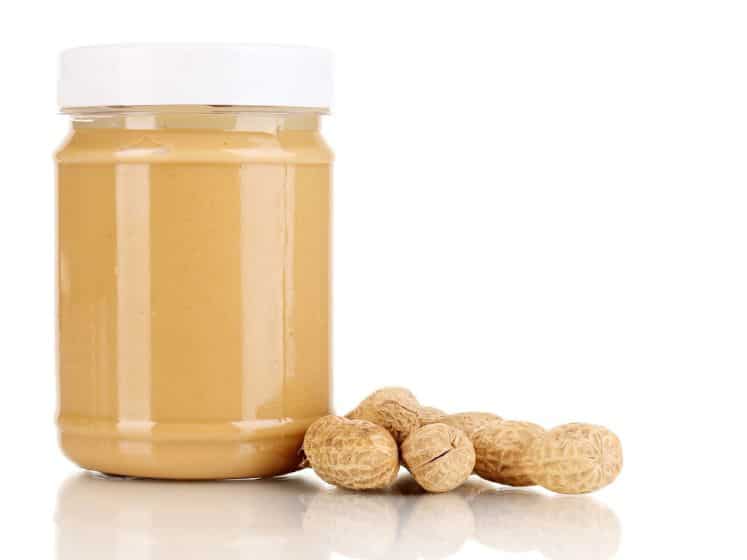
Storing nut butter in a warm place can cause the oils to separate and the butter to become rancid. The correct way to store nut butter is in a cool, dark place, and if it’s natural nut butter, it should be refrigerated after opening to extend its shelf life.
Tomatoes

Storing tomatoes in the refrigerator is a common mistake. Refrigeration can cause tomatoes to lose their flavor and become mealy in texture. The correct way to store tomatoes is at room temperature, away from direct sunlight, and in a well-ventilated area to avoid mold. If they are overripe, you can refrigerate them to extend their shelf life, but let them come to room temperature before eating for better flavor.
Bananas

Refrigeration can cause banana peels to turn brown and the fruit to become mushy. Bananas should be stored at room temperature. If they are ripening too quickly, you can refrigerate them to slow down the process, but the peel will darken. Despite the change in appearance, the fruit inside will remain relatively unaffected and can still be consumed.
Garlic
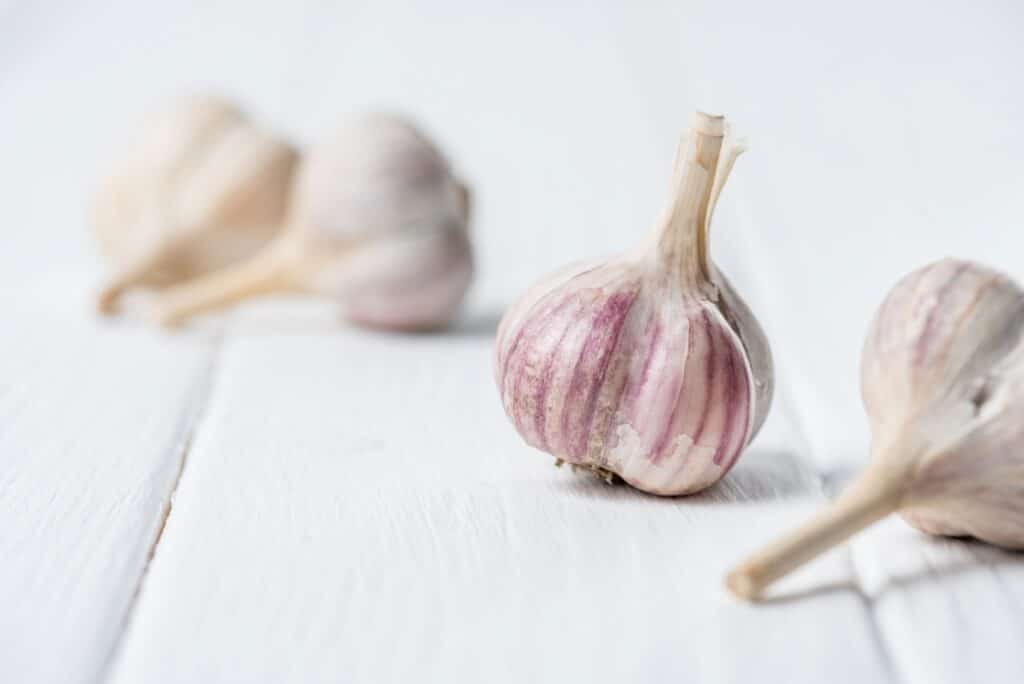
Refrigeration can cause garlic to sprout prematurely and develop a rubbery texture, which diminishes its quality and flavor. For optimal storage, garlic should be kept in a cool, dry place with good air circulation, such as a pantry. Using a mesh bag or a basket allows air to circulate freely, preventing moisture buildup that can lead to mold. Proper storage helps maintain garlic’s freshness and potency for an extended period.
Leafy Greens

Storing leafy greens in plastic bags without any ventilation is a common mistake. This can lead to moisture buildup, causing the greens to wilt and rot quickly. The correct way to store leafy greens is to wrap them in a paper towel and place them in a perforated plastic bag or a container with ventilation in the refrigerator.
Olive Oil
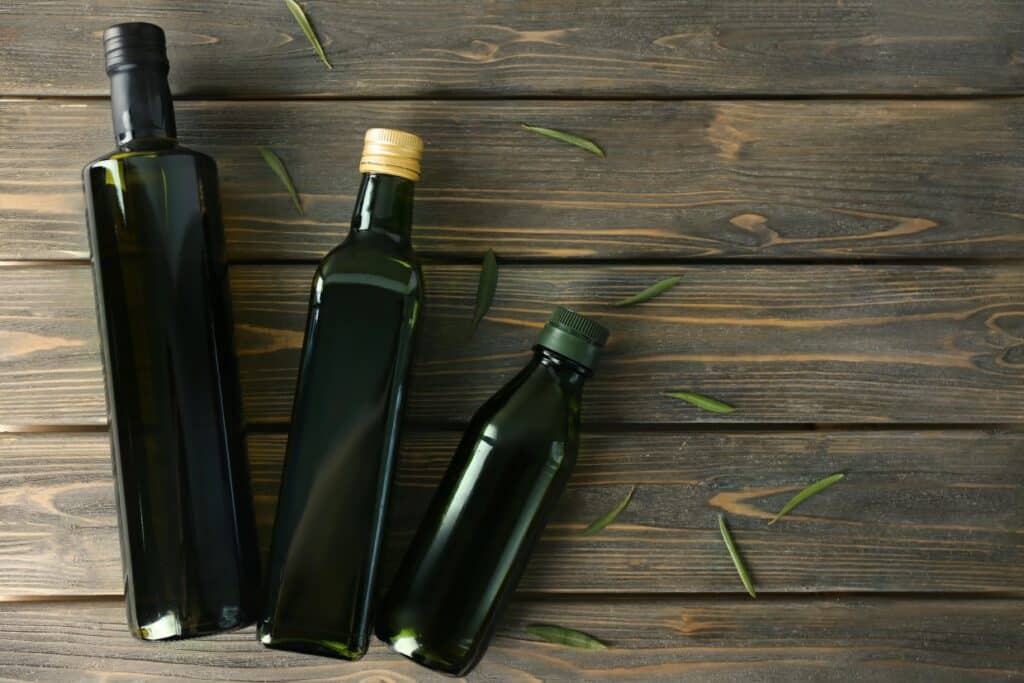
Heat and light can cause olive oil to go rancid quickly, compromising its flavor and nutritional value. To preserve its quality, olive oil should be stored in a cool, dark place, away from direct sunlight and heat sources. Using dark glass bottles or opaque containers helps protect the oil from light exposure, further extending its shelf life. Proper storage ensures that olive oil retains its rich taste and health benefits for a longer period.
Broccoli

Storing broccoli in sealed plastic bags without ventilation can cause it to become limp and develop mold. The correct way to store broccoli is to keep it in a perforated plastic bag or wrap it in a damp paper towel and place it in the refrigerator. The damp paper towel provides the right amount of moisture to keep the vegetable hydrated without creating a soggy environment.
Lettuce

Storing lettuce in sealed plastic bags without ventilation can cause it to become soggy and develop mold. The correct way to store lettuce is to wrap it in a paper towel and place it in a perforated plastic bag or a container with ventilation in the refrigerator.
Potatoes

Storing potatoes in the refrigerator is a mistake because refrigeration can convert the starches in potatoes to sugars, leading to a sweet taste and discoloration when cooked. They should also be stored away from onions and other produce that emit ethylene gas, as this can hasten spoilage. Store potatoes in a cool, dark, and well-ventilated place, such as a pantry or a cellar.
Cheese

Storing cheese in plastic wrap is a common mistake because it can trap moisture and lead to mold growth. Different cheeses have different storage needs. Hard cheeses like cheddar can be wrapped in wax or parchment paper and, if unopened, can remain in their original packaging. Soft cheeses, such as brie or camembert, should be stored in their original packaging or in a resealable container.
Raw Meat
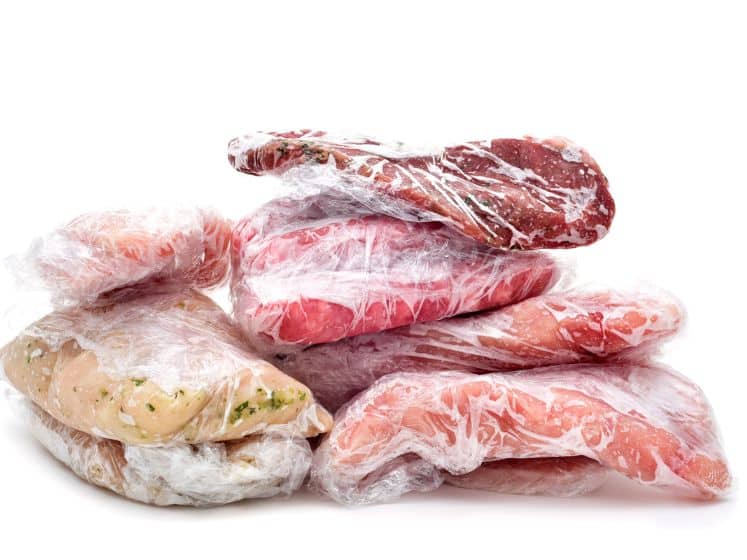
Storing raw meat on the top shelves of the refrigerator is a mistake because it can drip and contaminate other foods. To prevent cross-contamination, the correct way to store raw meat is to keep it in a sealed container or a plastic bag on the bottom shelf of the refrigerator. Additionally, always make sure to regularly clean and sanitize the refrigerator shelves and drawers to further minimize any risk of contamination.
Herbs

Fresh herbs are often stored in the refrigerator without proper care, causing them to wilt and lose flavor. The correct way to store herbs like parsley, cilantro, and basil is to place the stems in a glass of water, cover the leaves with a plastic bag, and store them in the refrigerator. Alternatively, wrap them in a damp paper towel and place them in a plastic bag.
Maple Syrup
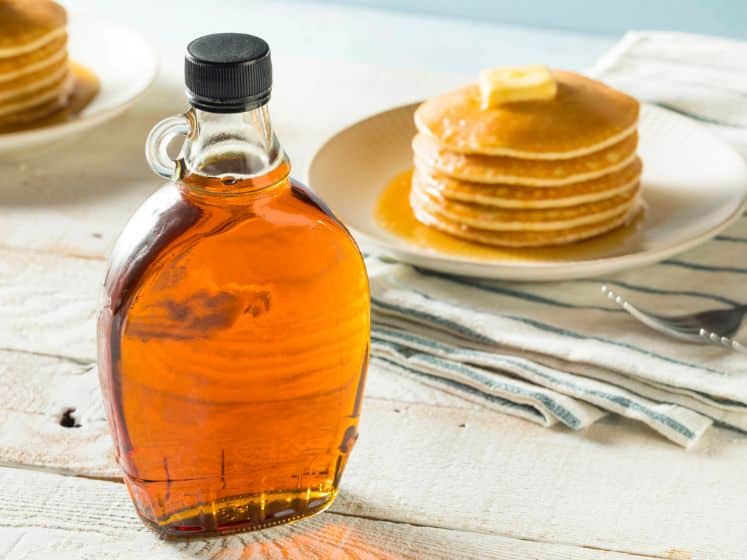
Storing maple syrup at room temperature after opening is incorrect because it can develop mold and spoil over time. Maple syrup is a natural product without preservatives, making it susceptible to microbial growth if left unrefrigerated. To ensure that your maple syrup remains fresh and safe to consume, it is essential to store it in the refrigerator once it has been opened. Refrigeration helps to preserve its quality and prevent the growth of mold and other harmful microorganisms.
Vinegar

Storing vinegar in a warm place or exposed to light can degrade its quality over time. To maintain its flavor and acidity, vinegar should be stored in a cool, dark place, in its original container or in a tightly sealed bottle.
Spices
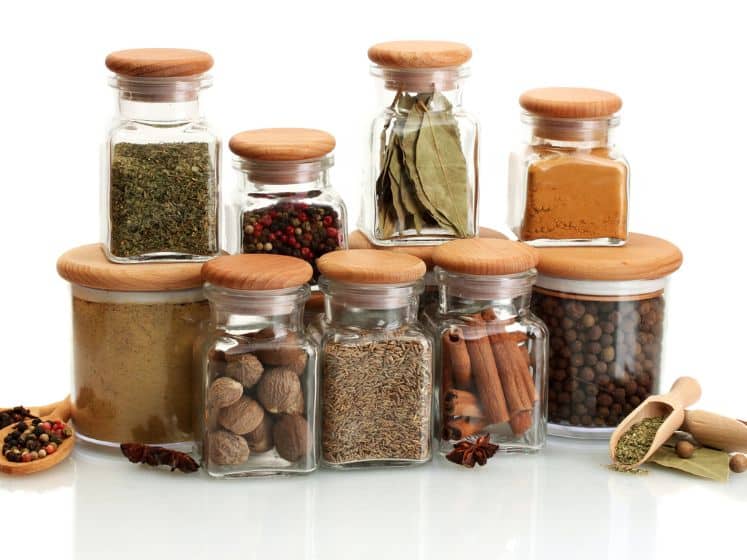
Storing spices near the stove or in direct sunlight can cause them to lose their potency and flavor quickly. To preserve their freshness, spices should be stored in airtight containers in a cool, dark place, such as a pantry or a spice drawer.
Honey

Honey should not be stored in the refrigerator because it causes crystallization and makes it grainy. To keep honey smooth and easy to use, store it at room temperature in a tightly sealed container. This prevents moisture from getting in and keeps the honey in its natural liquid state, perfect for drizzling, adding to tea, or using in recipes.
Whole Grains

Storing whole grains at room temperature is a mistake because their natural oils can go rancid. Heat, light, and air speed up this process, ruining their flavor and nutrition. To keep whole grains fresh and perfect for use, store them in an airtight container in the refrigerator or freezer. This way, they stay protected from factors that cause spoilage.
Spirits
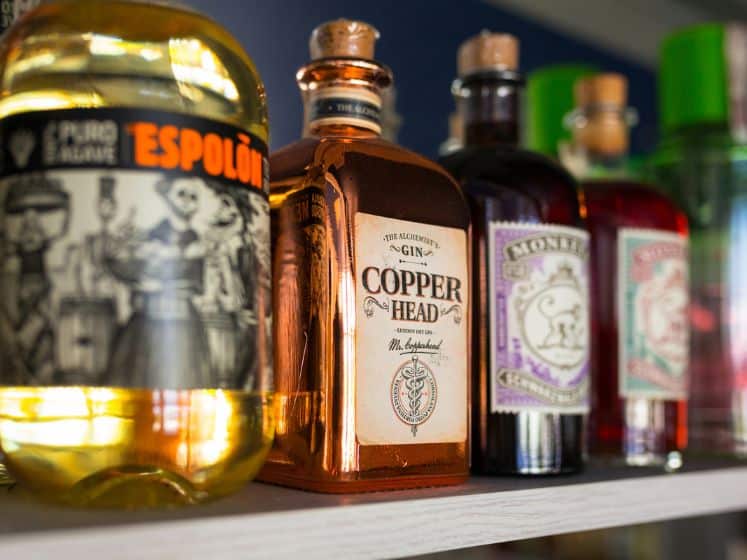
Storing spirits (such as whiskey, vodka, and rum) in direct sunlight or fluctuating temperatures can degrade their quality over time. The correct way to store spirits is in a cool, dark place, away from direct sunlight and heat sources. Ensure the bottles are tightly sealed to prevent evaporation and maintain their flavor.
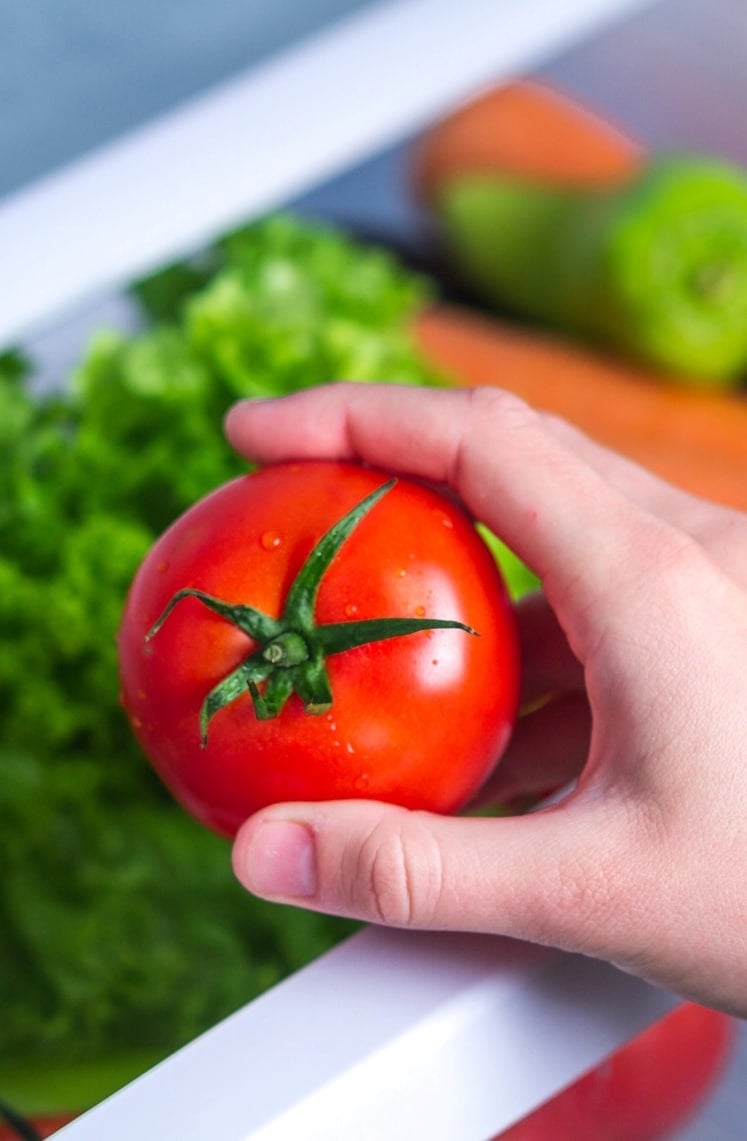


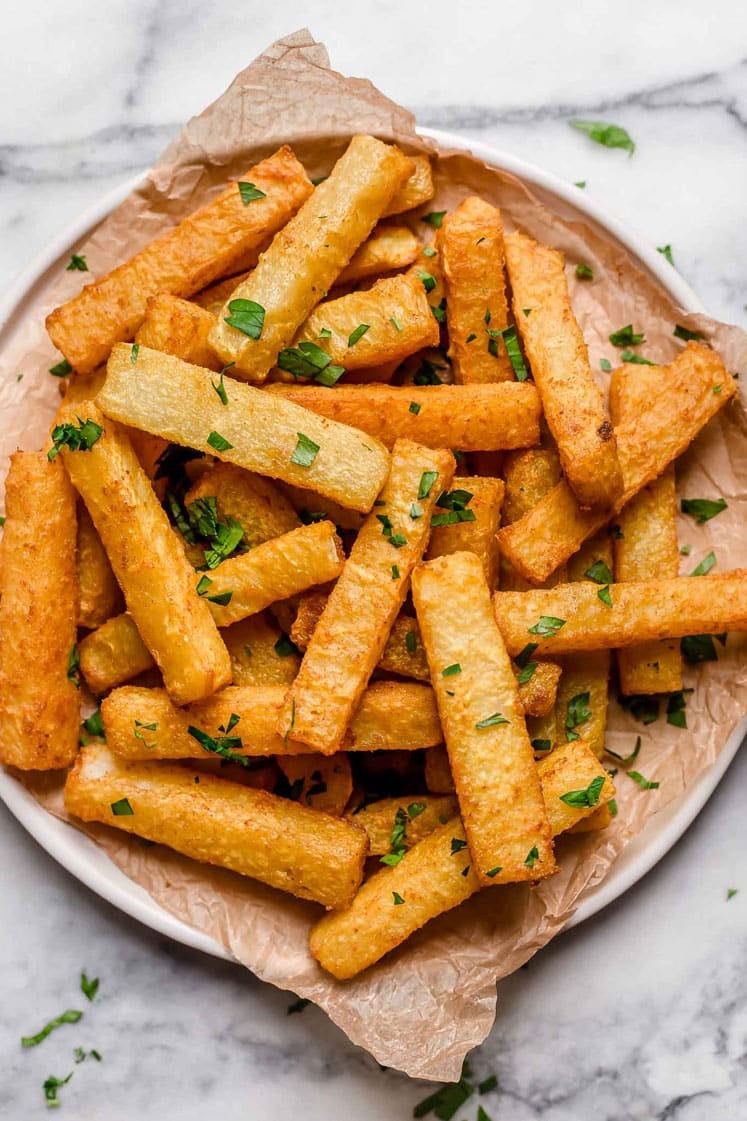
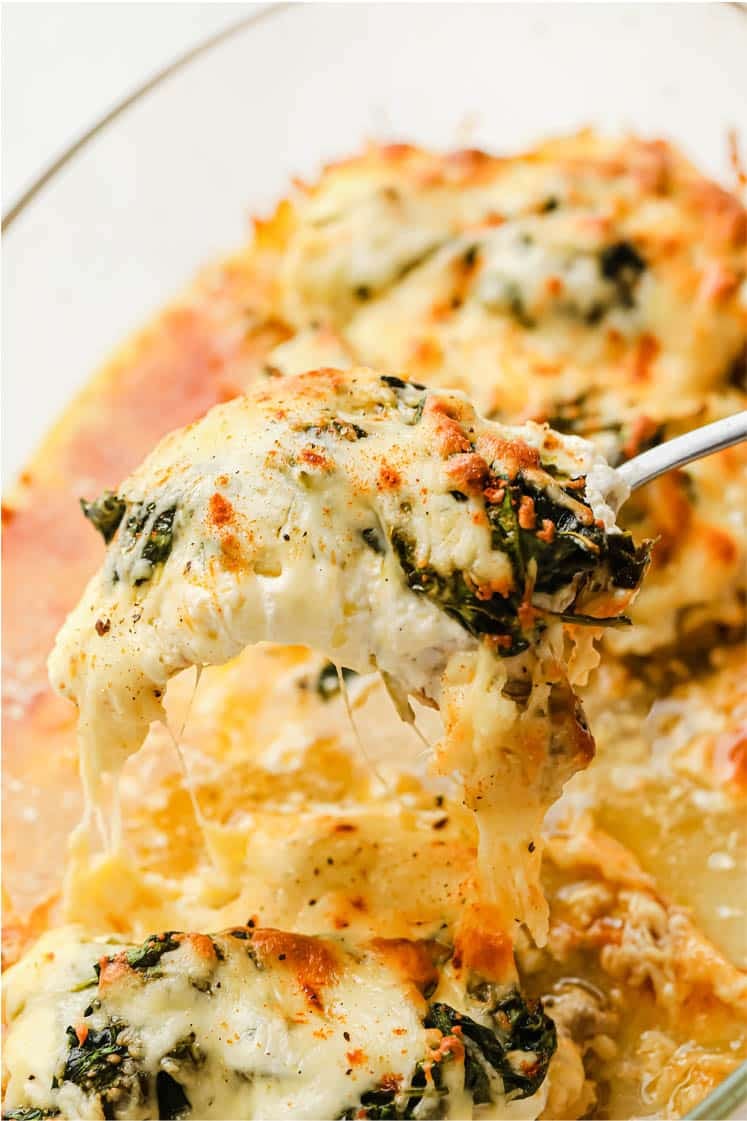

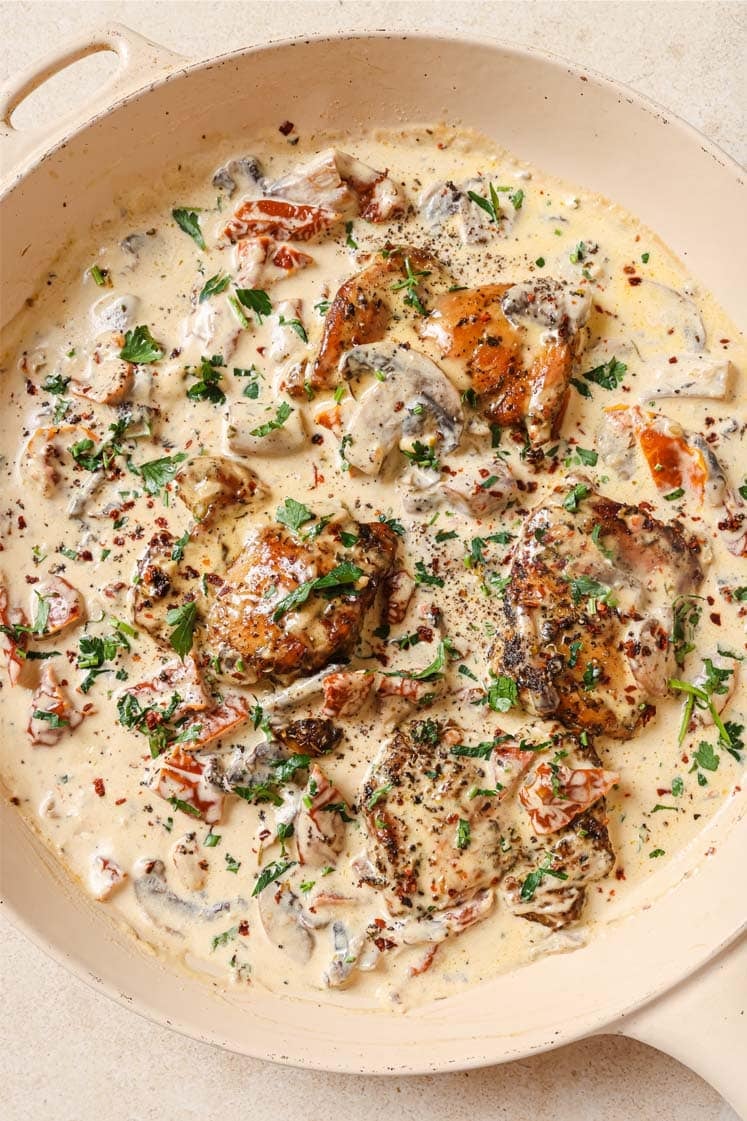
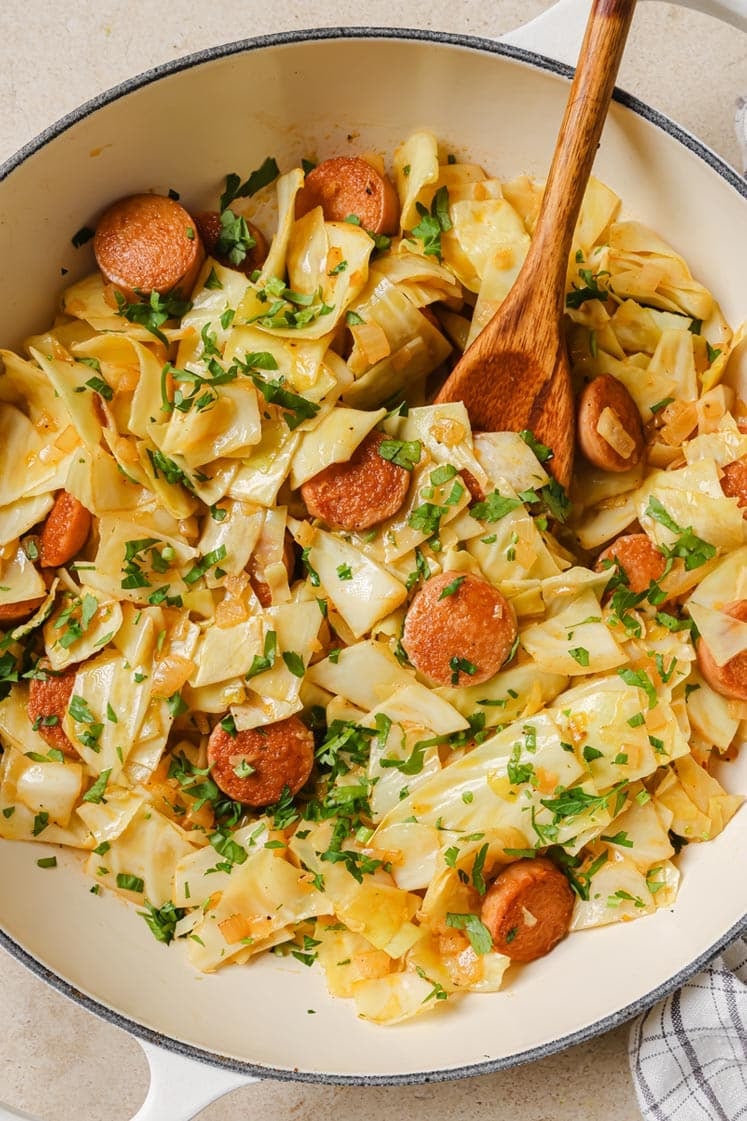
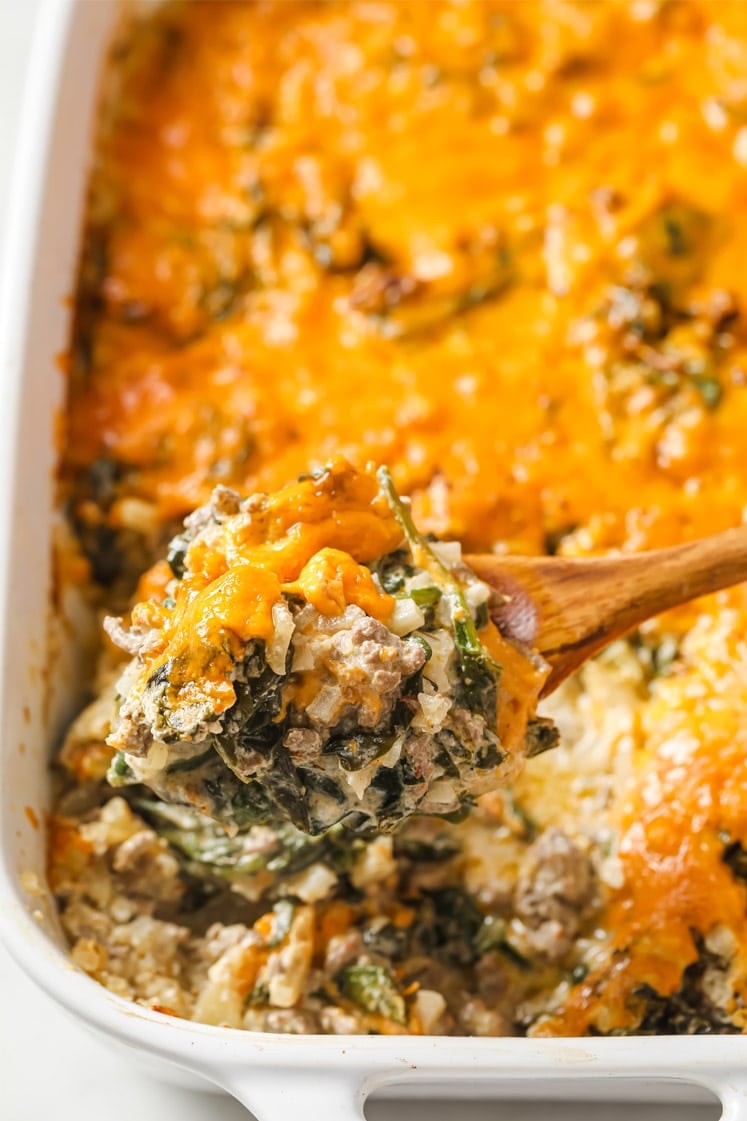
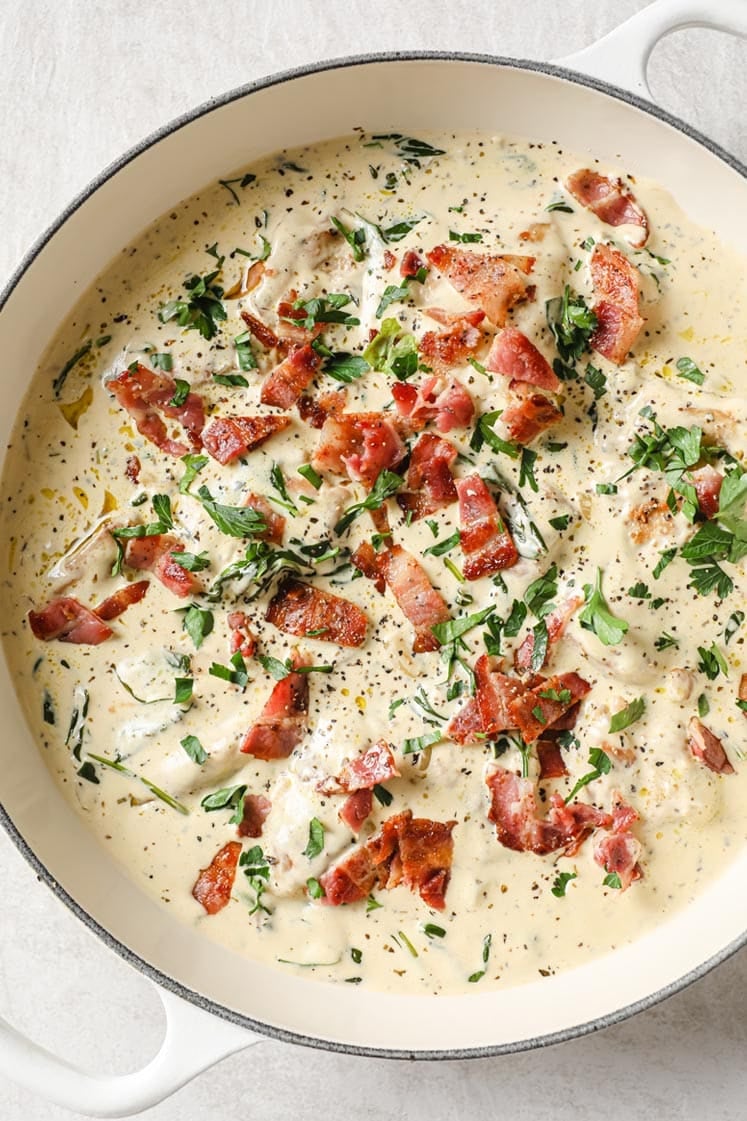
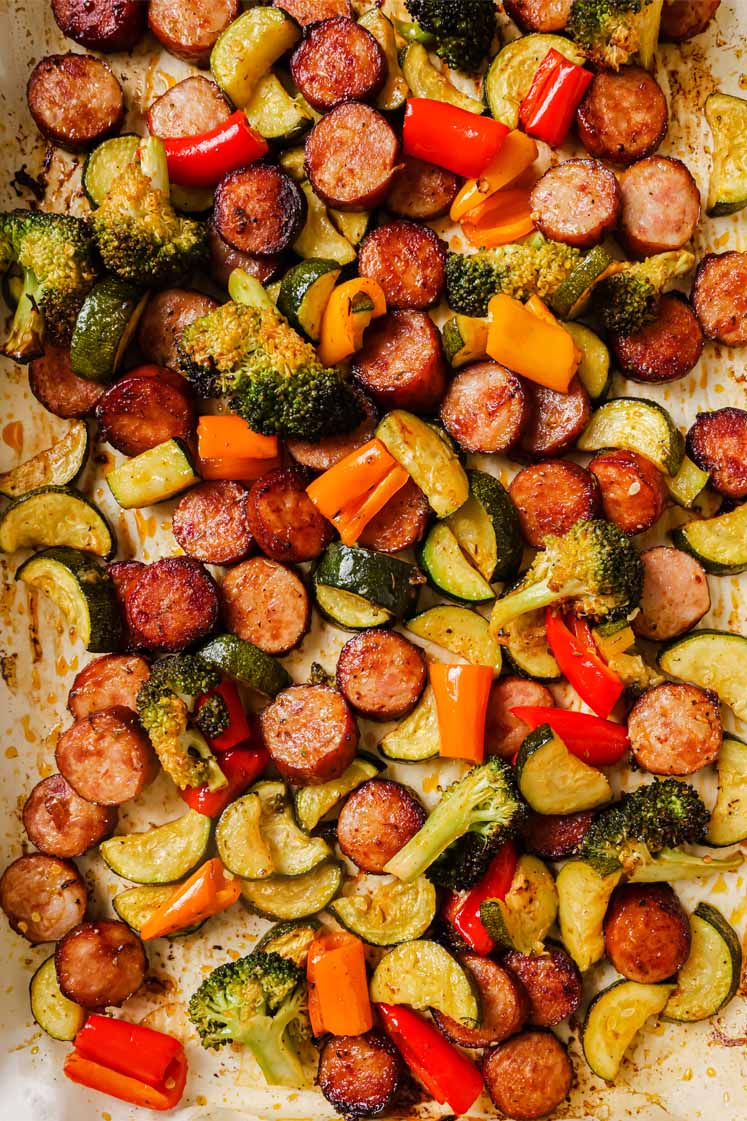
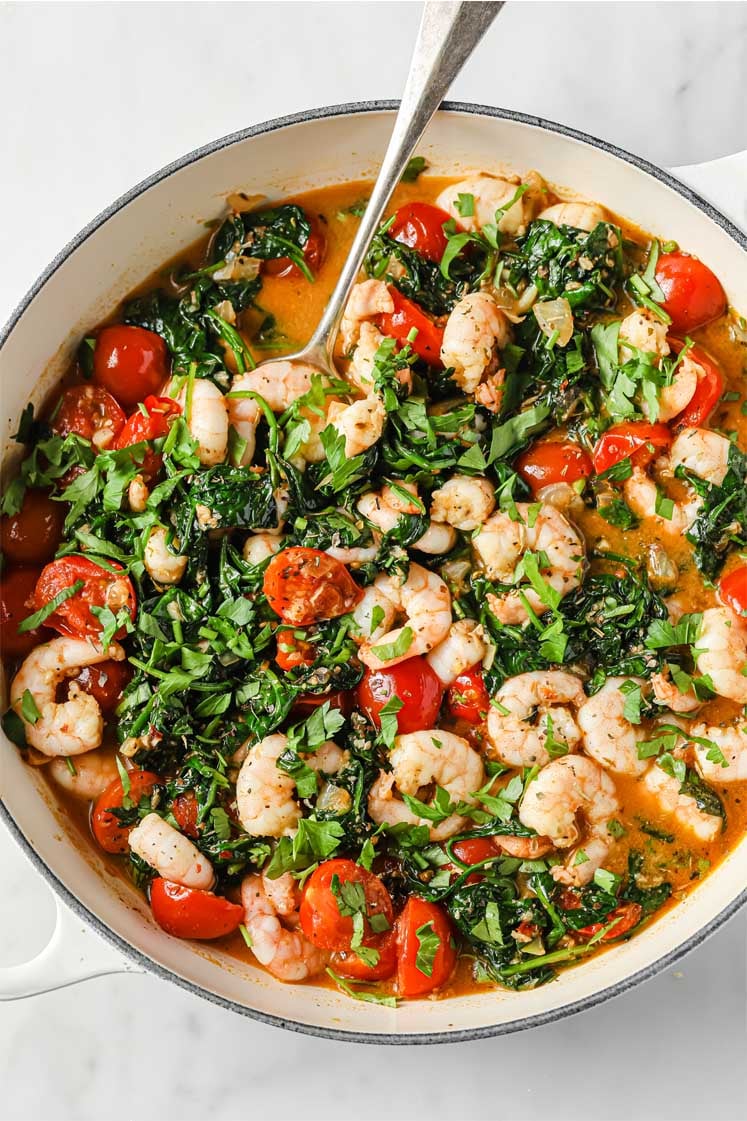
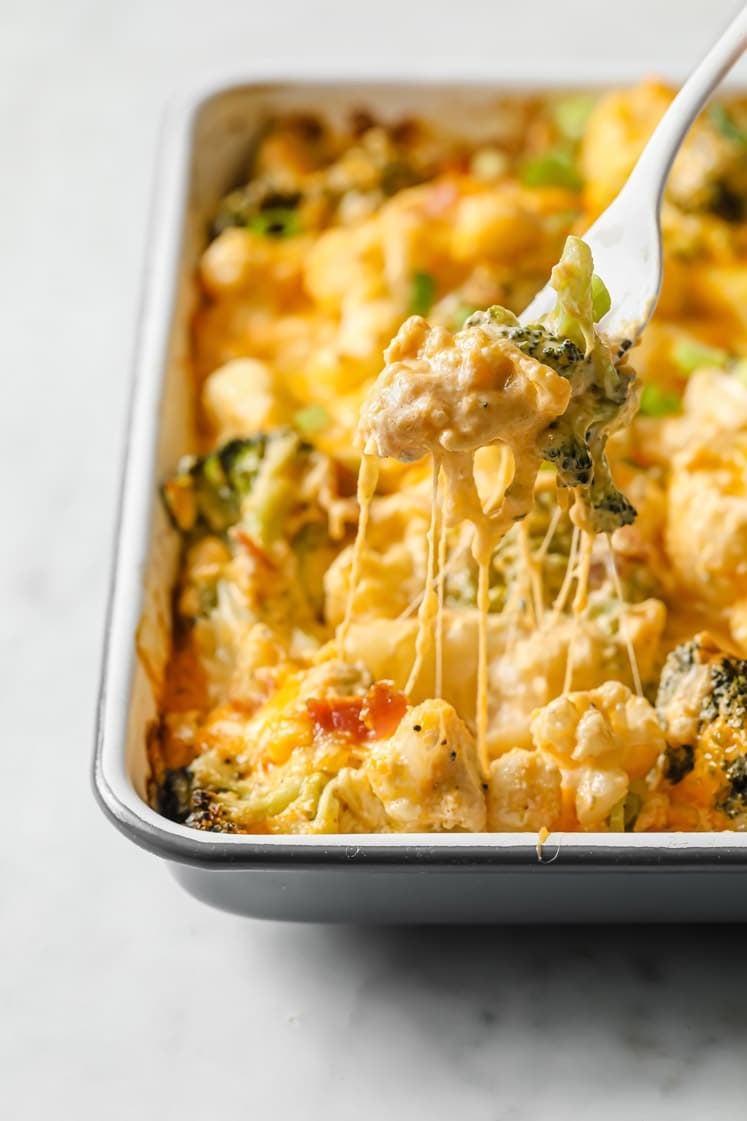
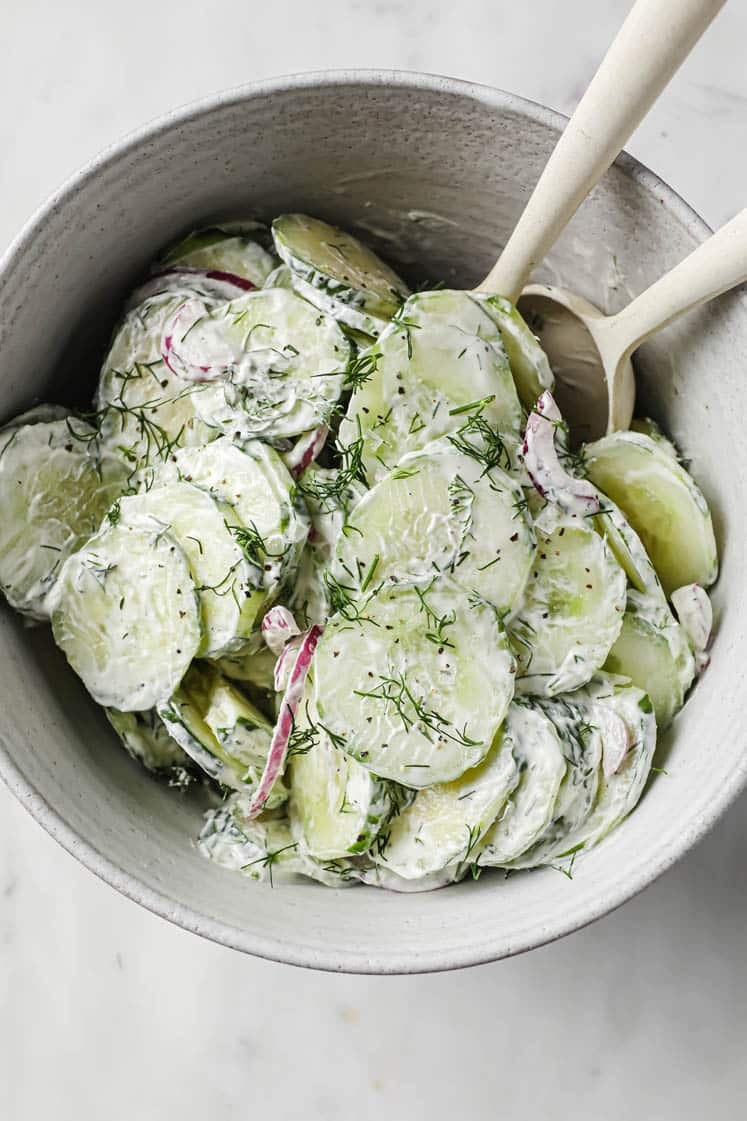









Leave a Reply